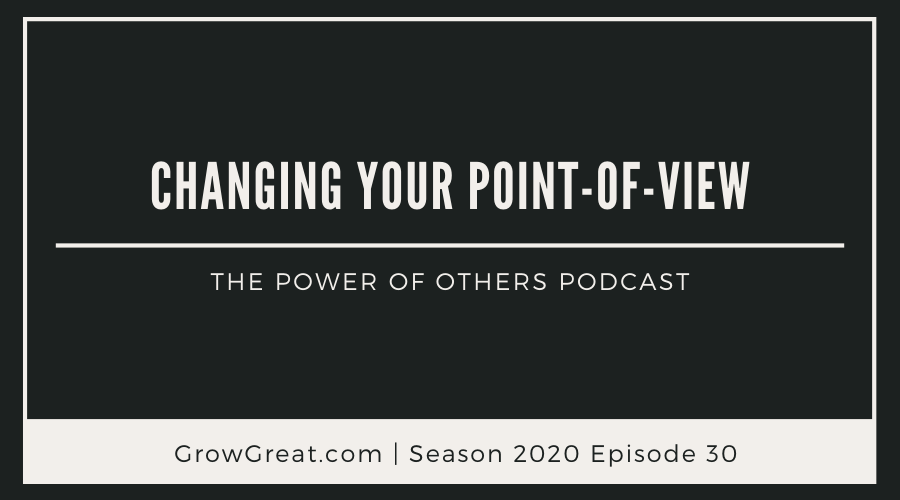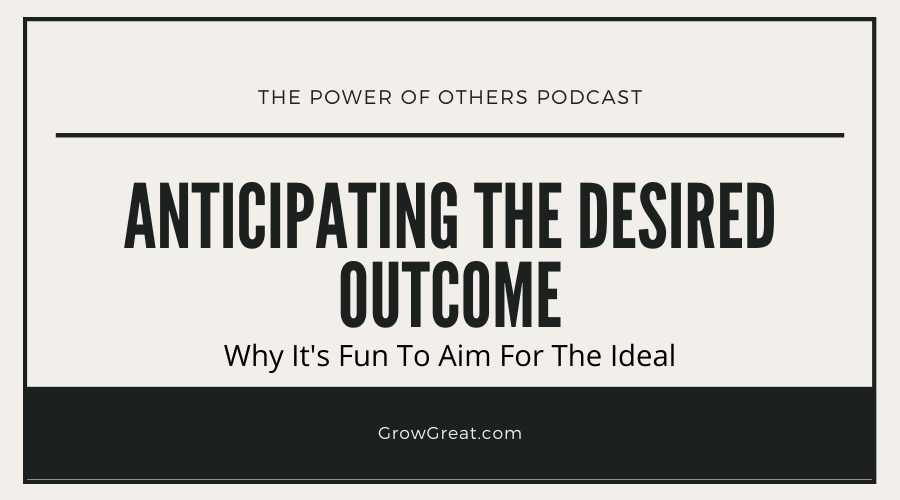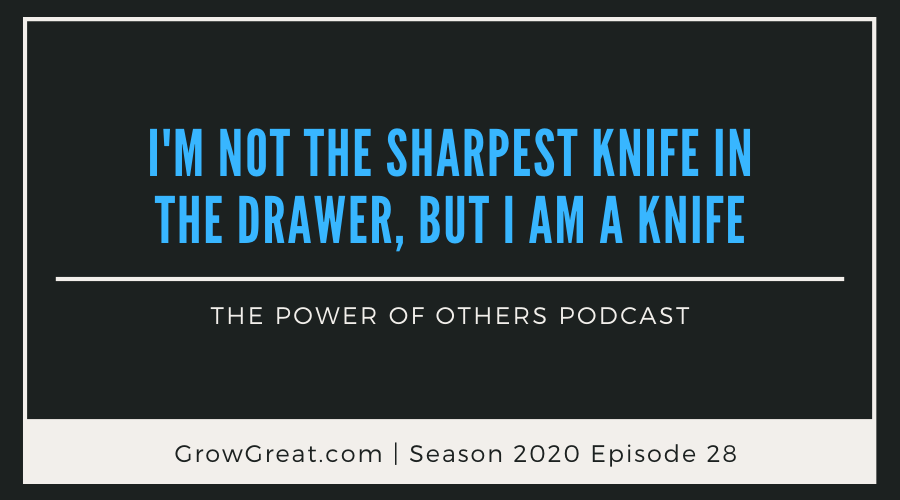Investing In Yourself, Training Yourself – Season 2020, Episode 33
Podcast: Play in new window | Download (Duration: 26:23 — 24.2MB)
Subscribe: Apple Podcasts | Spotify | RSS | More
I don’t know anybody who relishes getting up in the morning to attack the day in hopes of achieving a mediocre outcome. But that happens in the lives of too many people.
They lumber out of bed, prepare for the day with a quick stop by their favorite coffee joint in a mindless routine of preparing to simply endure another day. Pandemic notwithstanding, too many people behave as though they’re extras in The Walking Dead TV series.
We all have a philosophy – a way we approach our life. It includes how we see the world and our place in it. This isn’t some static view uninfluenced by age, experience, knowledge or our surroundings (including the people who surround us). It’s this constantly moving, shifting, organic thing, but it’s likely got some foundations that may not be quite as portable. Think of it as a room in your house – a fixed space – but within that room, there’s plenty of variations in how the future can be arranged.
Much of that foundation is based on our values, convictions, and beliefs. Not just about ourselves, but about others. And yes, perhaps about God. This also includes how we view success. It’s what matters to us. Largely comprised of what matters most to us!
Talk with 100 random people about these things and I’d wager you’d be hard-pressed to find more than a couple who could clearly articulate their life philosophy. Many of us are simply too busy, too stuck and too distracted to give it the thought and action it deserves.
Today, let’s try to change that, even if it’s just slightly. Maybe it’s time – or past time – for you to consider YOURSELF as a limited resource. What you choose to do with yourself is entirely up to you. Nobody else. You get to write your own story in spite of the fact that you may be deceived into thinking others are writing it for you. That only happens when you allow others to craft your story.
Step 1 – Don’t let them.
Before you can begin to leverage your own power to invest in yourself and train yourself to become better – you must assume responsibility for your own life.
If you’re prone to think of yourself as a victim then may I suggest you invest in some books aimed at helping people overcome such delusions. Talk with somebody. Seek out a professional mental health expert. Do whatever you must do to correct the damaging notion that you’re where you are because somebody (or a group of somebodies) have done this to you. Find whatever resources you can – and don’t stop until you find them – that can help you understand that you’ve got much more power than you think. Until you reach that place, your life will won’t improve because you’re failing to take ownership of your own story.
I’m a notebook freak. I love great notebooks. I’ve got them all around me, almost all the time.
Since I was a child I enjoyed writing things down. Making notes. Capturing quotes. Jotting down words or phrases. Titles of books. Or songs. Just getting things out of my head onto paper is something special for me. I can’t fully explain it.
Through the years I’ve started new notebooks thousands of times. There’s nothing quite like unwrapping the cellophane wrapping of a brand new notebook, one unmarred by anybody. No writing on any page. It’s my new notebook. I can write what I please when I please. When I was a kid I’d write my name in the front. And maybe the date. Or I might write a heading on a page in anticipation of what might follow. The great thing about it…I could do it however it suited me at the time.
Sometimes I’ve begun notebooks thinking I’d use this particular notebook just for a specific purpose. Some theme perhaps. Or something else. But a few pages in I changed my mind. And the notebook became a hodgepodge of ideas and random things. But it’s okay ’cause it’s my notebook and I can do with it as I please.
But when it comes to something infinitely more valuable than a notebook – YOUR LIFE – am I to believe that you have more control over a notebook or some app on your phone to capture ideas, than you do your life?
I’m supposed to believe as a fact that your life is like giving somebody else your phone so they can use the Notebook app on YOUR PHONE for YOUR LIFE?
Yep, sounds ridiculous when I put it that way, huh? Well, that’s because it is ridiculous.
I don’t care if people have done you wrong. It’s happened to all of us. Some worse than others, but we all suffer. We’ve all been hurt. Time to build a bridge and get over it because this is OUR LIFE and time is wasting.
Step 2 – Self-education is just the beginning, but it’s not the end.
Self-education is impossible in people who refuse to accept personal responsibility for their own lives. That’s why this is number 2, not number 1. 😉
Self-education is mandatory for everybody who aspires to achieve their ideal outcome. It’s not the end of education, but it’s the beginning, middle, and end. Better yet, it’s ongoing, continual, and never-ending. And it’s not the only form of education in our lives, but without it we don’t embrace the other forms necessary to help us reach our ideal progression. We won’t get better if we neglect it.
Daily we have to take it for ourselves by putting in the work to learn. Self-education isn’t just about knowing, it’s about doing. It’s about closing the “knowing-doing” gap by doing more consistently what we already know while simultaneously learning new things that we’ve never known before. Then doing something with that new knowledge.
Puzzles. Word games. Video games. Chess.
These are just a few examples of activities that appeal to millions of people for one simple reason. Humans thrive on figuring things out. We can be energized by complexity.
Last week my wife and I binge-watched a Netflix series, The Queen’s Gambit. It’s a mini-series about a child chess prodigy. She loves playing chess, trying to figure out new strategies. The character thrives on learning more about how to play chess.
Her commitment to chess propels her to pursue playing the game at the highest level possible. Hours spent reading books, talking with more seasoned players, competing in tournaments, and visualizing game strategy all contributed to her self-education.
Gauge your determination to educate yourself in areas where you have an interest. Or areas where you know it might benefit your life.
Self-education has a cumulative impact on our lives – a powerful, positive impact!
Step 3 – Anticipate what you need to know.
“Everything is hard until it’s easy.”
It’s my favorite quote even though I don’t know who said it. Or where I first heard it. But it’s simple and profound.
We don’t know what we don’t know, but we must anticipate what we need to know. It’s a big part of investing in ourselves and training ourselves.
Think about the things you know today that you consider quite common, but just a few years ago you had no clue how to do it.
Like how to post videos to Facebook? 😀
I still remember 10 years ago when older business people staunchly declared they’d never get a “smartphone,” and now you can’t pry it from their hands. That flip phone just couldn’t cut it anymore and they pilot their iPhones like teenage girls.
Many people wait to be trained. Big mistake!
If it is to be, it’s up to me.
Don’t wait for somebody to show up to teach you, or train you. Take matters into your own hands.
Start with the things you’d like to learn or the things you know you need to learn. Expand from there.
Maybe formal education is required. Likely not, but it could be. I mean, you’re not going to learn how to do surgery or practice law without both formal education and training. By the way, education is acquiring the knowledge necessary. Training is putting that knowledge into action. Both are critical for our growth and improvement.
Think longer term. Look further up the road from your current position. Aim for where you want to go, then get busy figuring out what you need to learn in order to get there.
Step 4 – Lean on others for help. #ThePowerOfOthers
There are only a few ways we learn.
Trial and error. This is common. We just try things and fail, try more things, and still fail. It’s not called “trial and success” for a reason. Because mostly it’s trying things that don’t work as we struggle to figure out what does work.
Self-education alone. Perhaps it’s less common than trial and error. Likely because many people don’t have the patience to study something on their own. When we read books, listen to podcasts, watch videos, take online courses or other things where we’re trying to figure it out by studying it out for ourselves…then we’re neck-deep in self-education. Which is a good thing. The only bad thing is that little word, “alone.” If this is all we do, it may only be slightly more impactful than trial and error.
Let somebody – or get somebody – to teach us, to show us and to coach us. It’s the most effective of the three. And it’s especially positive when we incorporate all three at the same time. “I don’t need help,” says the person who clearly doesn’t know what he’s doing. But pride won’t let him accept help. And pride will stymie his progress. Not worth it.
Leverage people who can shorten the time required to learn something. Connect with people who can teach you by educating you, and by showing you, then coaching you how you can do it.
I regularly tell folks that over a dozen years when I began Bula Network the work was mostly “roll-your-sleeves-up-get-your-hands-dirty” consulting work. Overtime it quickly morphed into coaching. It almost always sparks the question, “What’s the difference between coaching and consulting?” To which I answer, consulting is “do it for them” and coaching is helping them learn how to do it for themselves. It’s that give a man a fish versus teach a man to fish deal.
Every coaching client I’ve ever had can (and will) tell you that the acceleration of growth made with help is vastly better than trying to go it alone. It’s true of anything people want to learn. Somebody out there has the ability to help us learn it. Our job is to ask, “Who?” Then seek them out.
Charles Handy is an Irish author and expert in organizational behavior and management. I’m a longtime fan of his books. One of them is entitled, The Age Of Unreason.
I’ll give Mr. Handy the last word today – words he wrote in that book, published in 1989.
“If changing is really learning, if effective organizations need more and more intelligent people, if careers are shorter and more changeable, above all, if more people need to be more self-sufficient for more of their lives, then education has to become the single most important investment that any person can make in their own destiny.”
Be well. Do good. Grow great!

Investing In Yourself, Training Yourself – Season 2020, Episode 33 Read More »
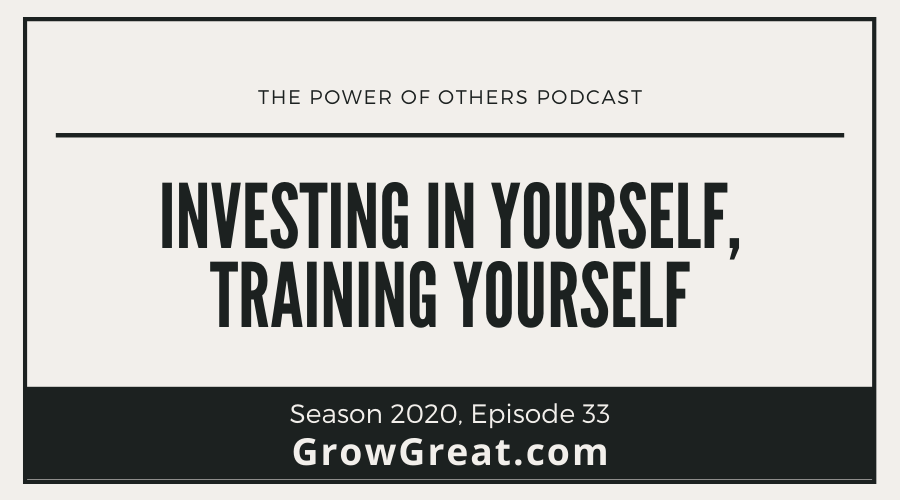
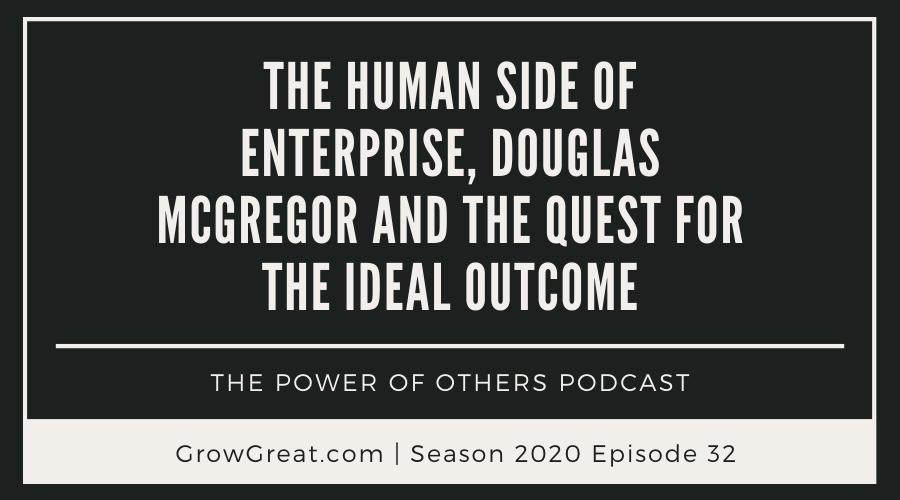
 Douglas McGregor was a founding faculty member of MIT’s Sloan School of Management. In 1960 he published,
Douglas McGregor was a founding faculty member of MIT’s Sloan School of Management. In 1960 he published, 
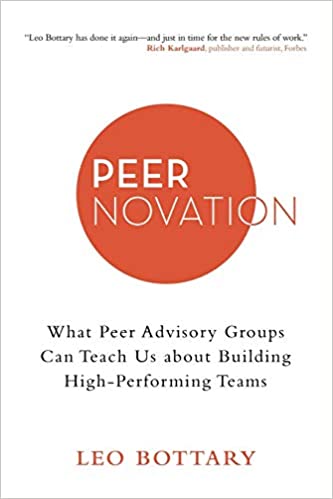 Days ago the book was released –
Days ago the book was released – 